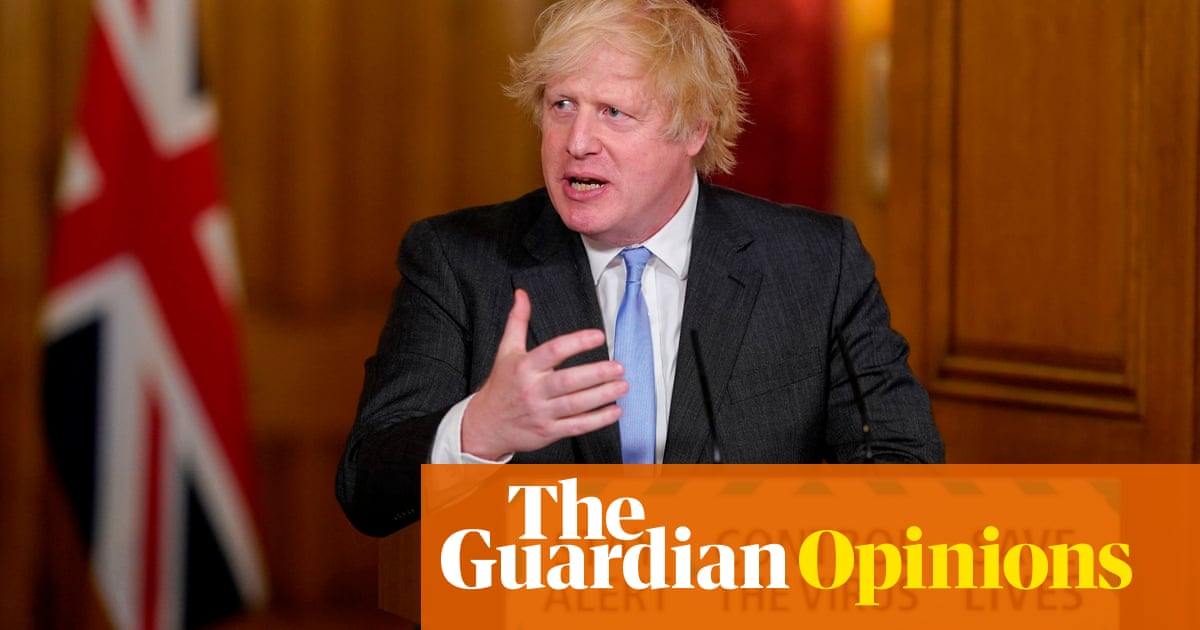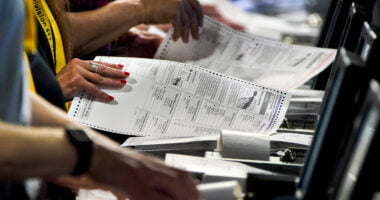
It is clear from the volume and complexity of new hygiene guidelines that the grand reopening of England’s consumer economy, scheduled for 4 July, marks no return to normality. The long-deferred pleasure of the pub will be diluted by measures to enforce physical distance between punters. Fear will still keep many away.
Britain’s struggle with coronavirus has certainly moved into a new phase, but the transition is more political than clinical. The shift is symbolised by the abandonment of routine Downing Street press conferences. It is hard to mourn the passing of an institution that was often characterised by obfuscation, but the decision to dispense with the exercise is revealing. The government no longer wants the burden of sharing information with citizens.
Sometimes the press conferences let in light by accident. The decision to stop publishing a graph showing international mortality rates spoke volumes about the government’s shame at a British death toll surpassing most others around the world. As lockdown comes to an end, ministers might be relieved not to face televised questions on infection rates and hospitalisations.
A subtext of the new regulations is that responsibility for managing the pandemic will become more diffuse. Businesses and their customers will somehow have to negotiate a new modus operandi to balance economic activity with safety. Local authorities will have to respond to outbreaks of Covid-19 on their patches, although few have sufficient resources. Budgets were already hollowed by austerity. A study by the Centre for Progressive Policy, a thinktank, has found scores of English councils – potentially eight in 10 – vulnerable to bankruptcy from the additional cost of handling the pandemic. Then there is the logistical obstruction of coordinating with central government. It is unclear how councils will interact with a national test-and-trace mechanism, hastily assembled from contracts with the outsource company Serco.
The precedent from this kind of arrangement is systemic dysfunction with accountability falling in gaps between multiple agencies and institutions. There is also ample precedent for Mr Johnson seeking to evade responsibility for bad decisions. When talking about the pandemic response, he uses the rhetoric of shared national effort, and while it is true that people across the country deserve enormous credit for sacrifices they have made, there is cynicism in the prime minister’s effort to launder his own reputation in the collective endeavour.
Britain has suffered more from Covid-19 than other European countries because Downing Street was slow to appreciate the scale of a threat that could easily have been grasped by observing events already unfolding across the Channel. Ministers have subsequently tried to parcel blame on to scientific advisers, whose counsel Mr Johnson claims to have followed. That, too, is a device for evading responsibility. Political leaders take advice on countless decisions, major and minor, but ultimately apply their own judgment. So it is now with the release from lockdown, as scientists sound more cautious than ministers. A calculation has been made inside Downing Street that the economic cost of keeping businesses closed any longer would be too high for any precautionary benefit in further repressing the infection rate. Mr Johnson would prefer not to get the blame if that turns out to be a mistake and blurring the lines of accountability is one way to achieve that, as is controlling the flow of information.
The government has already been chastised by the national statistics authority for misleading the public on rates of testing. As economics became the overriding impetus behind policymaking, scientists began appearing less frequently in press briefings. They will now be spared the ordeal altogether. In the early stages of the crisis, Mr Johnson borrowed the credentials of qualified medical professionals to bolster his authority. He had not previously been one for deferring to experts and the truce did not last long. He appears now to be straying back on to more familiar territory – the place where facts are not independently verifiable things but plastic political expedients fashioned from assertion, self-belief and an optimistic tone. In that respect, if no other, the easing of lockdown signals a return to business as usual for Mr Johnson.
• This article was amended on 25 June 2020. The study by the Centre for Progressive Policy found eight in 10 English councils were vulnerable to bankruptcy from the additional cost of handling the pandemic, not one in eight English councils as an earlier version said. This has been corrected.
The Guardian





